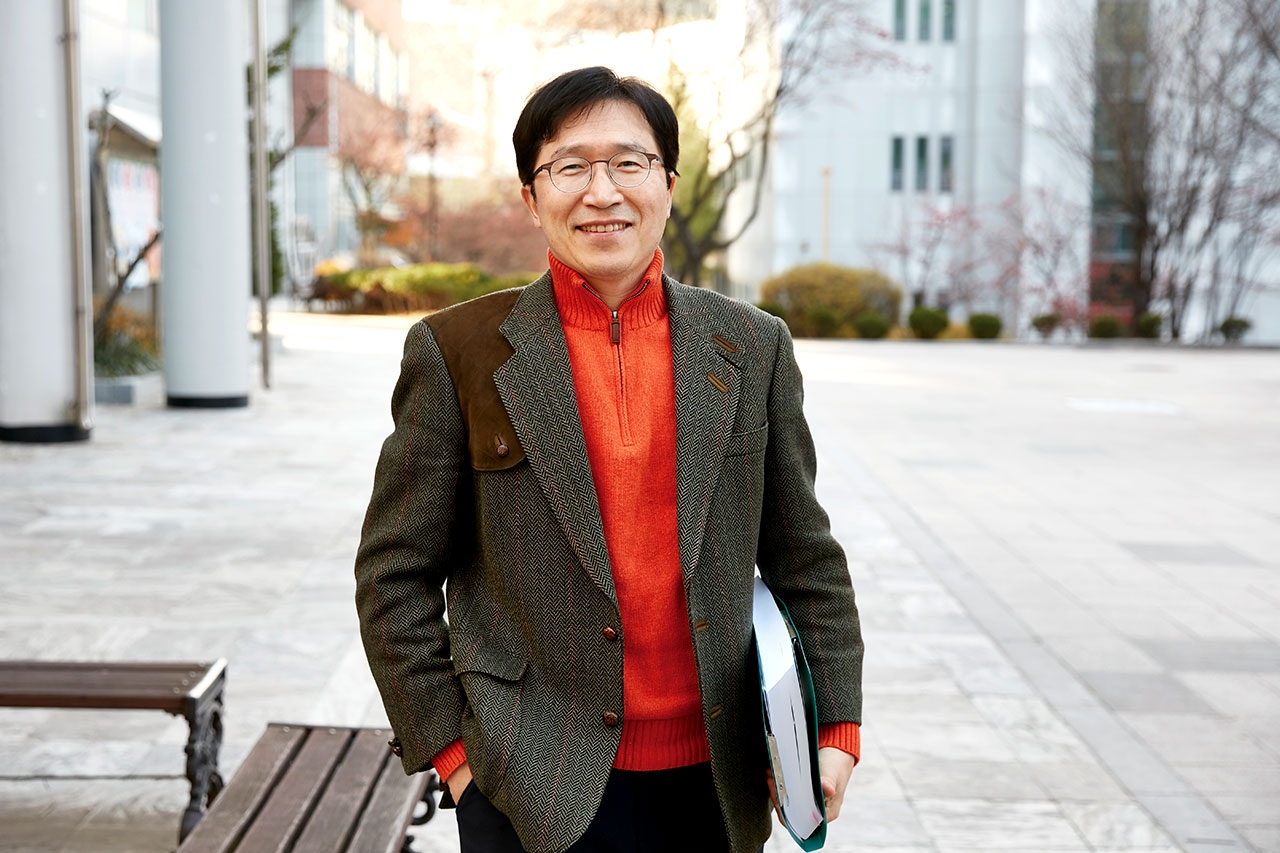Lee, KangKun
Professor
Hydrology, Hydrological geoenvironment
Laboratory of Hydrogeological Environment
Office :
Bldg 25-1 Room 506
/
+82-2-880-8161
Lab. :
Bldg 25-1 Room 515
/
+82-2-873-3647
Email : kklee@snu.ac.kr
Major
# Earth System ScienceResearch Topic
⏺ Groundwater and soil contamination, remediation
⏺ Thermal use of ground source heat (Renewable energy from groundwater (open loop heat pump))
⏺ Groundwater flow and solute transport in fractured rocks
⏺ Data science in hydrogeology (CART and ANN application to groundwater data)
⏺ Hydrogeology in nuclear waste disposal
⏺ Use of noble gases for analyzing subsurface contamination and CO2 storage project)
⏺ Groundwater responses to earthquake
⏺ Thermal use of ground source heat (Renewable energy from groundwater (open loop heat pump))
⏺ Groundwater flow and solute transport in fractured rocks
⏺ Data science in hydrogeology (CART and ANN application to groundwater data)
⏺ Hydrogeology in nuclear waste disposal
⏺ Use of noble gases for analyzing subsurface contamination and CO2 storage project)
⏺ Groundwater responses to earthquake
Education
- Ph.D., Earth & Atmospheric Sciences, Purdue University, West Lafayette, IN, USA, 1992
- M.S., Geophysics, Seoul National University, Seoul, Korea, 1986
- B.S., Geological Sciences, Seoul National University, Seoul, Korea, 1984
Careers
- President, The Geological Society of Korea, 2018-2019
- President, Korea Society of Soil and Groundwater Environment, 2011-2012
- Director, SEEDS (for DNAPL study) Groundwater Research Group (GAIA Project), 2009-2014
- Assistant Professor, Associate Professor, Professor, Seoul National University, Seoul, Korea, 1993-
Papers
- Kang-Kun Lee, William L Ellsworth, Domenico Giardini, John Townend, Shemin Ge, Toshihiko Shimamoto, In-Wook Yeo, Tae-Seob Kang, Junkee Rhie, Dong-Hoon Sheen, Chandong Chang, Jeong-Ung Woo and Cornelius Langenbruch, (2019). Managing injection-induced seismic risks. Science, 364(6442), 730-732, doi: 10.1126/science.aax1878
- Jaeyeon Kim, Jungjin Lee, Marco Petitta, Heejung Kim, Dugin Kaown, In-Woo Park, Sanghoon Lee and Kang-Kun Lee, (2019). Groundwater system responses to the 2016 ML 5.8 Gyeongju earthquake, South Korea. Journal of Hydrology, 576, 150-163, doi: 10.1016/j.jhydrol.2019.06.044
- Sanghoon Lee, Kang-Kun Lee and Heesung Yoon, (2019). sing artificial neural network models for groundwater level forecasting and assessment of the relative impacts of influencing factors. Hydrogeology Journal, 27, 567-579, doi: 10.1007/s10040-018-1866-3


